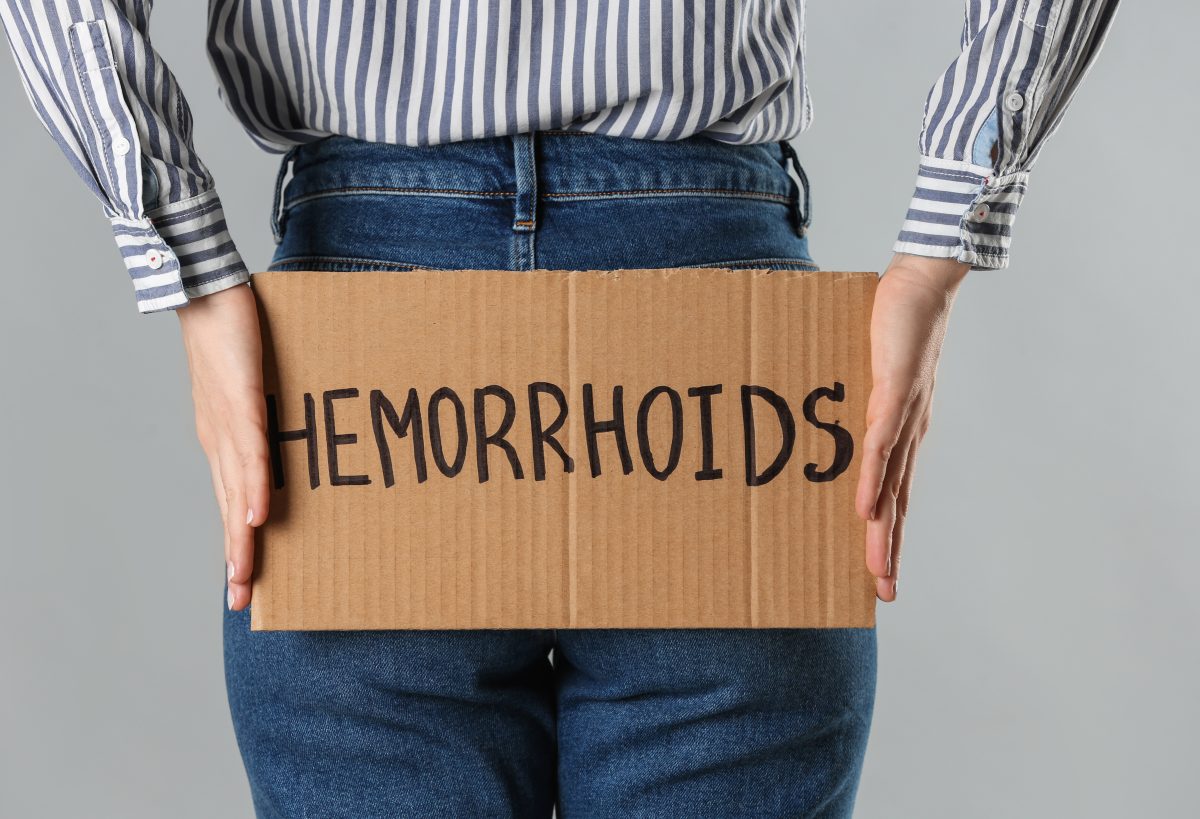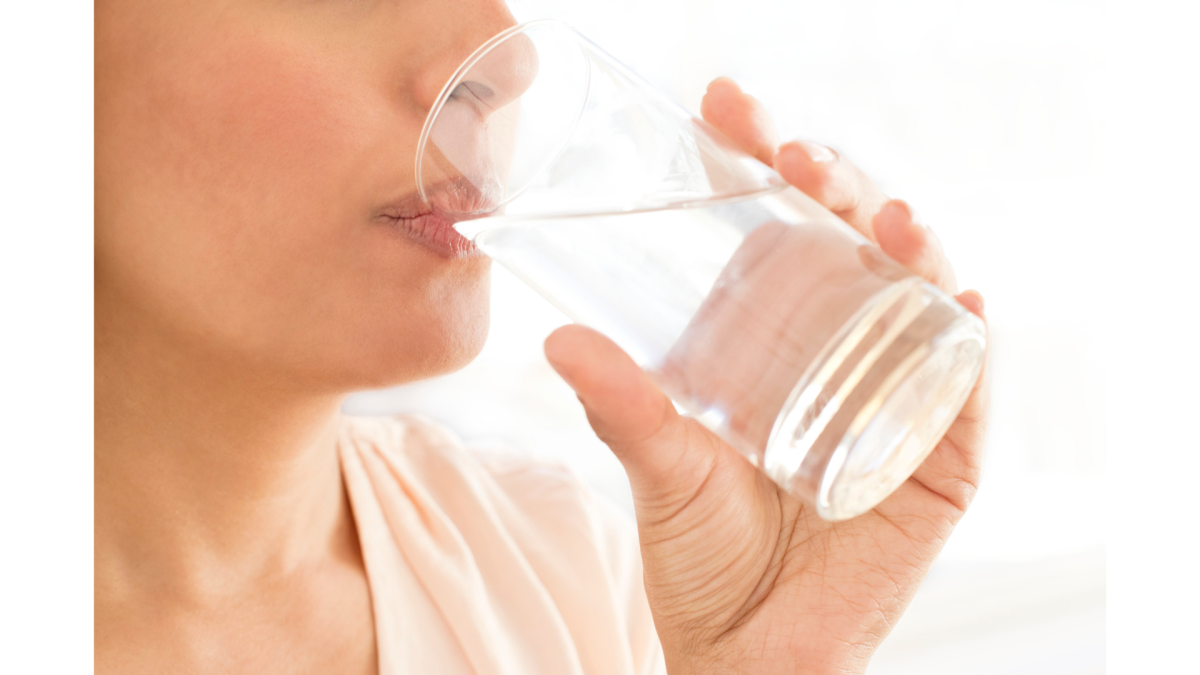IBS and Hemorrhoids: A Comprehensive Guide including remedies
- Lifestyle Advice
If you suffer from IBS and hemorrhoids, you are in the right place. IBS by itself is very challenging to deal with. Other issues that arise alongside IBS, such as hemorrhoids, can leave you feeling hopeless.
In this article, we will discuss what hemorrhoids are, common symptoms and causes, whether IBS causes hemorrhoids, and provide some advice on what you can do when you have both IBS and hemorrhoids.

What are hemorrhoids?
Hemorrhoids, also known as piles, are enlarged blood vessels that develop in the rectum or anal region. These can be internal (within the rectum) or external (around the opening of the anus).
External hemorrhoids are the most common and often have the most physical and bothersome symptoms (1).
Approximately 50% of adults experience hemorrhoids by age 50 (Fox et al. 2).
Common symptoms of hemorrhoids include (3):
- Bright red blood in your poo
- An itchy or irritated anus
- Feeling like you need to open your bowels when you have just gone.
- mucus coming from your anus
- lumps on your anus
- A painful anus
What are the risk factors for hemorrhoids?
Multiple factors can contribute to the development of hemorrhoids.
It is thought that all the below factors lead to extra pressure on the rectum or anal area which is the route cause of hemorrhoids;
- A high body mass index
- Chronic Constipation
- Chronic Diarrhea
- Spending an extended period of time sitting on the toilet
- Sedentary lifestyle
- Pregnancy
- Family history
- Inflammatory Bowel Disease
Does IBS cause hemorrhoids?
Research has shown a relationship between IBS and developing hemorrhoids (4).
People with IBS who suffer from both constipation or diarrhea are thought to be more prone to hemorrhoids.
This is because the extra pressure caused by straining to make a bowel movement and sitting on the toilet for longer causes increased pressure in the rectum, leading to hemorrhoids.
What diet should I eat to improve IBS and hemorrhoids?
You may be wondering if there is a specific diet you should being following to improve IBS and hemorrhoids.
This section will discuss dietary strategies that can be implemented to help IBS, helping to both treat and prevent future hemorrhoids.
In order to manage hemorrhoids caused by IBS we need to reduce the need to strain on the toilet, avoid constipation and resolve diarrhea.
There are no specific foods that have been shown to help hemorrhoids. However, there are specific diets and types of food shown to improve the risk factors related to getting hemorrhoids.
Targetting constipation
Fiber will help to soften your poo, making it easier to pass and requiring less straining and a shorter amount of time on the toilet.
You should be aiming for approximately 30g of fiber per day spread across 3 meals and snacks. Some people find when trying to increase the fiber content of their diet it makes their symptoms ‘worse’.
Knowing which types of fibers to choose can be helpful to prevent unwanted side effects. Our article on How does fiber affect IBS? provides a guide on which fibers are best for IBS.
It is also key to ensure you are drinking enough water, especially if you are increasing your fiber intake.
For more information on constipation, see our article, What is constipation and how can you treat it?
Targeting diarrhea
For IBS-D, avoiding caffeine, alcohol, and spicy and fatty foods are just a few key things to implement to help manage your diarrhea.
For more information on managing diarrhea in IBS, see our other guides articles below:
- What is IBS-D and how can you manage it?
- What is metamucil (psyllium husk) and can it help with IBS-Diarrhea?
- Is porridge good for IBS?
- The Low FODMAP Diet
- Do glutamine supplements help with IBS?
- How does coffee affect the digestive system?
- Low FODMAP spices (discusses how spice affects our guts).
Using fiber supplements can also be a useful way to improve both diarrhea and constipation. Take a look at our article Best Soluble Fibre Supplement according to a Dietitian.
Will probiotics help my hemorrhoids?
The term probiotic refers to live microorganisms (bacteria, yeasts, spores) that have a positive effect on your health or on a symptom you may have (5).
Some strains of probiotics have been proven in research to alleviate the symptoms of IBS, including constipation and diarrhea, and so may help manage your hemorrhoids by treating the route cause.
Probiotics do not work for everyone. It is recommended that you trial a strain-specific probiotic for your symptoms. For more information, see our article on Probiotics for IBS.
Is yogurt good for hemorrhoids?
You may have heard that yogurt can help with IBS and hemorrhoids. Normal yogurts are unlikely to make hemorrhoids any worse or better unless you have a lactose intolerance.
See our article on Understanding lactose intolerance: symptoms,Diagnosis, And Management Strategies for more information.
Also, the idea that yogurt causes constipation is a myth, so there is no need to avoid yogurt if you have constipation.
Specific yogurts containing probiotics could help with your constipation, therefore helping to manage your hemorrhoids. Once again, please refer to our article on Probiotics for IBS, which can provide more guidance.
Can being dehydrated cause hemorrhoids?
Yes. Being dehydrated can lead to or worsen constipation, resulting in the development of hemorrhoids.
If you do not drink enough water, your stools will become hard and dry, resulting in constipation. Aim for 35 ml of water per kg of body weight to ensure you are adequately hydrated.
If drinking plain water is dull, add some slices of lemon or orange to the water to make it more interesting. You can also hydrate using herbal teas, fruit juice, milk and coffee all in moderation.
An indicator of good hydration is the pale yellow color of the urine.

Medical Management of hemorrhoids
Hemorrhoids can be managed by using topical treatments, taking painkillers and even procedures and surgery can be considered (6).
Common topic treatments include:
- Anosol
- Anacal
- Germoloids
- Anodesyn
These topical treatments contain lubricants which help to alleviate irritation, local anesthetics can relieve pain, itching and burning, corticosteroids relieve inflammation and pain.
These can be bought over the counter, as can painkillers such as paracetamol and ibuprofen which can also help to alleviate pain.
Should painkillers or topical treatments not provide adequate relief, non-surgical and surgical procedures may be indicated.
If you think you have hemorrhoids, always consult with your doctor so that other causes of symptoms, such as rectal bleeding, can be ruled out.
Your doctor will also be able to advise you on the best management strategy for your hemorrhoids.
Summary
The cause of your Hemorrhoids can be related to your IBS, given that the symptoms associated with IBS, including diarrhea and constipation, can cause excess pressure in and around your anus.
If you think your hemorrhoids are linked to your IBS, it is worthwhile getting the right advice to help manage your IBS from a registered dietitian, helping to prevent future hemorrhoids and manage current ones.
Probiotics can be used to help manage IBS and therefore may be beneficial for your hemorrhoids.
If yogurts contain strain-specific probiotics proven to help IBS, these may also be beneficial.
Although it is likely just a hemorrhoid, if you see blood in your stool, always get it investigated by your doctor and seek appropriate treatment options.
References
- https://www.ncbi.nlm.nih.gov/books/NBK500009/
- Fox A, Tietze PH, Ramakrishnan K. Anorectal conditions: hemorrhoids. FP Essentials. 2014;419:11–19.
- https://www.nhs.uk/conditions/piles-haemorrhoids/
- https://www.ncbi.nlm.nih.gov/pmc/articles/PMC4261279/
- https://pubmed.ncbi.nlm.nih.gov/2666378/
- https://cks.nice.org.uk/topics/haemorrhoids/management/management/